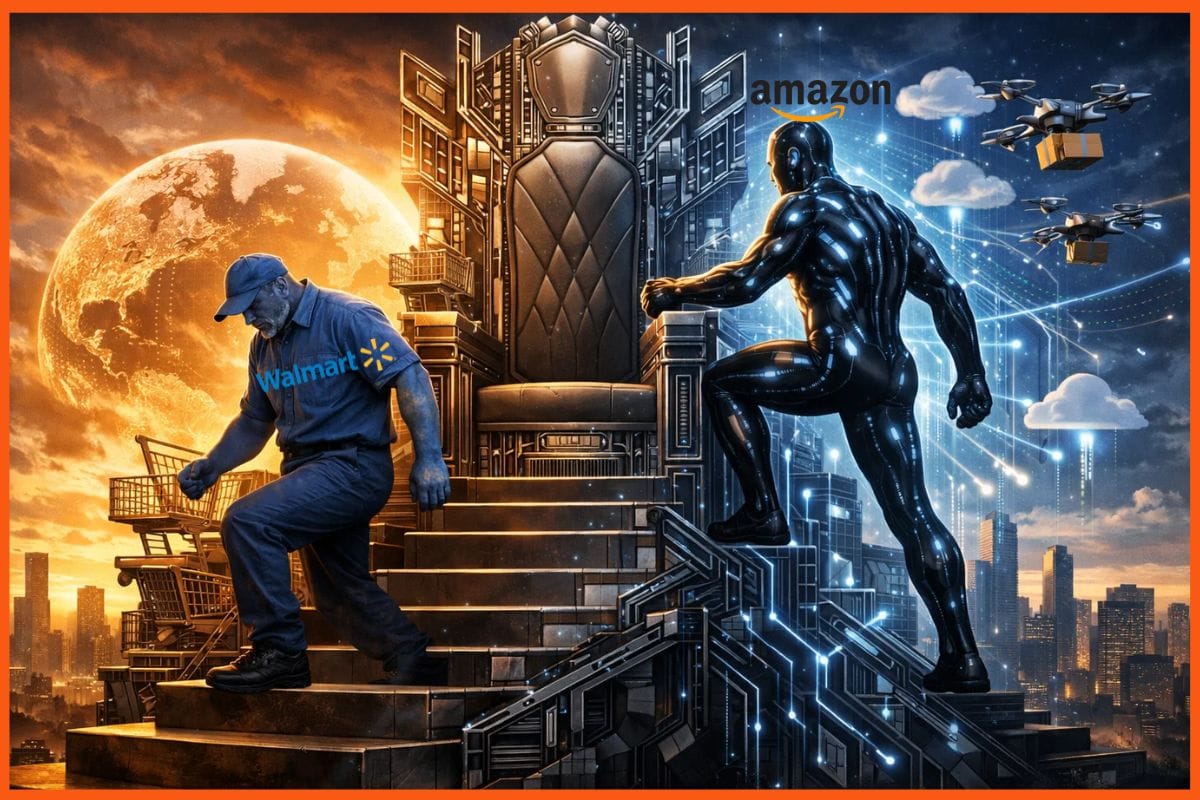All You Need to Know About Decoy Marketing Technique | How It Is Used?
📖 Learning
There are various marketing techniques available for a brand to promote itself, but the decoy effect comes to the forefront. Known for its unique advantages that help brands triumph over their business competitors, decoy marketing is one of the most popular marketing schemes available. In this article, you are going to get a glimpse at what this technique is, the tools it employs, and how it benefits you. With a well-rounded argument about decoy marketing, you can take your pick today!
What Is Decoy Marketing?
Ways to Use Decoy Marketing
Advantages and Disadvantages of Decoy Marketing
What Is Decoy Marketing?
At its base level, marketing is a term that refers to selling the product of a company. However, as the understanding of human psychology has developed and widened more expansively than before, a new stream of consumerist psychology based on the needs of the consumers has emerged. This type of study examines more than simply focusing on a target audience. It encounters the territory of behaviour prediction, consumer behaviour manipulation, deliberate changing of attitudes and beliefs, and more.
Each approach works on the principle of one or more marketing techniques to sell products and ensure loyalty among customers. One such technique is the decoy effect. This effective mechanism engages with the consumer’s subconscious and enables greater profit margins. Keep reading to know how decoy marketing has come to the forefront and is here to stay.

Decoy Effect in Marketing - Meaning
As a buyer of goods, you are a consumer who comes into contact with many different types of brands. These brands are always on the lookout to boost sales and bring in higher profits to sustain the company and ensure longevity. As a result, they employ different techniques to ensure that you, the buyer, purchase their products.
The decoy marketing technique not only helps brands ensure a consumer buys their products but also purchases the more expensive options over the cost-savers. However, on paper, that seems unreasonable. Buyers automatically move towards deals that will help them save money while also getting a great offer. So why would they go for items that cost more?
This is where decoy marketing comes into play. The decoy effect refers to placing a bait or a decoy item that is either more expensive or ridiculously cheaper. In this process, consumers purchase the item that will bring in the most profit for the company instead of saving money by buying the item that costs less. This marketing technique pushes the item that the brand wants to sell at the same cost before the introduction of the bait item. Let us take a look at how this technique works using concrete examples.
Ways to Use Decoy Marketing
The decoy effect is not always easy to spot when you are not looking for it. However, if you keep an ear out, you will be able to find the tell-tale signs of the marketing scheme. For instance, have you ever visited the supermarket and encountered a product priced surprisingly high? The price tag makes no sense, but the brand may have possibly intended it that way. The deliberate hike in the cost of the item forces consumers to look for a lower price, the next lower rung on the ladder. That is the conscious manipulation of the consumer's tendency to buy the next best deal at a cheaper cost.
Here are three ways that brands use the decoy effect to sell high-cost items.
The First Way to Use Decoy Effect in Marketing

For example- There are two ice cream sizes you will encounter at a shop - Big and Small. Let us say they cost the following:
Small ice cream - $1.99
Big ice cream - $5.99
Customers who visit the shop will predictably move towards the smaller size. However, to push the bigger product, the decoy strategy will insert an additional size and cost, the medium-
Small - $1.99
Medium - $4.99
Big - $5.99
Someone who is looking to save money on a deal that offers the most will turn towards the medium option. The medium option is the tactic that brands use to get consumers to spend more than they would have otherwise.
The Second Way to Use Decoy Effect in Marketing
In the second method, let us say there are two ice cream tubs available, the size and cost of which are:
Small - $1.99
Big - $5.99
Mega - $12.99
The last option has an inflated price tag. As a result, to get the best possible deal in terms of both cost and offer, a buyer will go for the 'Big size'. The brand has intentionally inserted the inflated amount. They do not expect that people will rush to buy it. However, the high cost ensures that the price of the product above is much more attractive to the consumer. Therefore, people will be more likely to pay for the big size than they would have before the inclusion of the mega size.
The Third Way to Use Decoy Effect in Marketing
The third way focuses on offering a consumer an expensive product at what the buyer thinks is a good price. Say you go to a shop and you see the following four products:
Product A - $10.99
Product B - $12.99
Product C - $20.99
Product D - $35.99
A buyer will probably avoid Product D since the price is much higher than the other options. However, a decoy option may be inserted in the following manner:
Product A - $10.99
Product B - $12.99
Product C - $20.99
Product D - $35.99
Product D - $50.99
In this new set, there are two versions of Product D. However, one costs more than the other. Thus, buyers are more likely to choose Product D which costs $35.99. It is because they believe it will offer them the same features as Product D which costs $50.99 but at a much more affordable price. This ensures people buy the products most profitable to the brand’s interests.

Advantages and Disadvantages of Decoy Marketing

Many big brands like Apple, McDonald's, Amazon, The Economist, The New York Times, and more use decoy marketing techniques to attract more customers to their profitable products.
However, as with all other marketing techniques, the decoy effect also possesses advantages and disadvantages. These elements will help understand how the technique can work to promote a company’s products to the greatest effect. Take a look at how the decoy effect in marketing can benefit as well as create drawbacks.
Advantages
The following are the advantages of the decoy effect in marketing:
- Eliminates Paradox of Multiple Options - Sometimes, having too many options can be more of a nightmare than you would think. While having options is certainly liberating, too many choices will lead to a consumer avoiding them altogether. This is known as the multiple-choice paradox. Therefore, the decoy technique helps people to choose among a limited number of options. A brand can still sell its products while offering selected options.
- Offers a Win-Win Situation - The decoy technique offers a situation that is advantageous to both the company as well as the consumer. The customer gets more options and receives better deals. On the other hand, the brand can market those items that would not have fared well before the introduction of the decoy item. That makes for a win-win situation.
- Ensures Better Sales - The decoy item is present to ensure that it pumps up the target item. The decoy product is not what is going to be sold. The brand wants the consumer to buy a product, and the decoy will help promote that item. Therefore, it will help sell the creations of the company better.
- Sells Poorly Performing Products - If there is a product that is not seeing a lot of success, the decoy marketing technique can improve its condition. By showing a more expensive, trumped-up product, consumers are more likely to choose the next best offer available. A company can then market its more unpopular products in this category.

Disadvantages
The following are the disadvantages of the decoy effect in marketing:
- Can Create Customer Aversion to Brand - The main element of the decoy marketing technique is speaking to the client’s subconscious. If you alter your prices drastically but offer the same product without any updates, the brand may face accusations of false values. Make sure to take advantage of the subtlety factor when employing this technique.
- Requires a Lot of Strategies - The decoy effect requires solid strategizing. If you do not price a product properly, the technique can backfire, leading to a drop in sales or even unchanging attitudes. Moreover, the price has to be set just right to bring focus on the item that must be sold. Customers will otherwise choose the same costing products before the introduction of the decoy item.
Conclusion
The decoy effect is a successful manoeuvre in the world of marketing and consumer behaviourism. With its innumerable pros and useful tools available under its belt, the decoy technique is a profitable one. When used under the right circumstances in the right manner, the technique can help improve a brand’s saleability and help it prosper.
However, subtlety and care are the big names of the game. To increase sales revenue, the brand must ensure that the product offers what it promises. This will ultimately ensure ease of selection as well as increased purchases from the consumer’s side.
FAQs
What is a decoy in marketing?
A decoy refers to a third option that a brand offers in order to change consumers' preferences regarding two basic options available. This phenomenon is known as the decoy effect or attraction effect in marketing.
What is an example of decoy pricing?
One of the most common examples of decoy pricing is the popcorn sizes available in movie halls. The small and the large sized ones are the basic competitor products, but the involvement of a medium size widely influences customers' preferences. People prefer to buy the medium size thinking that it strikes a balance between the other two products.
How do marketers use the decoy effect?
Marketers use the decoy effect to make the consumers believe that their target product is better than its cheaper alternatives. They do it by making a product more appealing to the consumers' subconscious minds.
Must have tools for startups - Recommended by StartupTalky
- Convert Visitors into Leads- SeizeLead
- Website Builder SquareSpace
- Run your business Smoothly Systeme.io
- Stock Images Shutterstock






